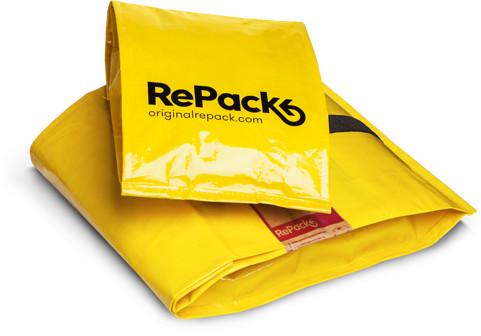In recent months, the booming market for sports cards has been shaken by the rise of a lucrative yet controversial practice known as “repacks.” These repacks – opaque bulk sales of assorted cards sold without full disclosure of their contents – have drawn soaring attention from collectors and industry insiders alike. As stories of inflated prices and questionable grading multiply, calls for greater transparency and regulatory oversight are intensifying. This article examines how repacks have emerged as a high-stakes trend within the sports card world, the challenges they pose to buyers, and the growing demand for accountability in an increasingly profitable yet unregulated segment of the hobby.
The Rise of Repacks in the Sports Card Market
The sports card market has recently witnessed an explosive surge in the popularity of repacks-sealed packs of assorted cards sold without disclosure of the contents inside. These repacks have captivated collectors and investors alike, fueled by the promise of uncovering rare or valuable cards hidden among common finds. However, this frenzy has also sparked growing concern over the opaque nature of the repack industry, as buyers often have little insight into the odds or authenticity of the cards they receive. Industry insiders warn that this lack of transparency could lead to inflated prices and potential market manipulation, creating a volatile environment for enthusiasts looking to invest responsibly.
Several key factors contribute to the repack trend’s rapid ascent:
- Accessibility: Repacks offer an affordable entry point for newcomers chasing big-ticket items without purchasing expensive sealed boxes.
- High stakes thrill: The gamble-like element encourages repeat purchases, as buyers chase the excitement of uncovering hidden gems.
- Digital marketplaces: Online platforms have expanded reach, enabling repack sellers to move large volumes with little scrutiny.
| Metric | Repacks | Traditional Packs |
|---|---|---|
| Price Range | $5 – $50 | $10 – $200 |
| Content Disclosure | None | Partial (based on series info) |
| Buyer Confidence | Low to Medium | Medium to High |
| Market Impact | Volatile | Stable |
Investor Appetite and the Surge in Big-Money Sales
In recent months, a wave of high-stakes transactions has swept through the sports card market, fueled by growing interest from deep-pocketed investors eager to capitalize on the burgeoning repack trend. These big-money sales often involve repackaged card lots-large bundles of assorted cards broken down into new, attractive packages for resale-that can fetch prices soaring into the hundreds of thousands. What sets these deals apart is not just their sheer size, but the strategic bets investors place, banking on the potential for rare, high-value discoveries within bulk purchases.
Key drivers behind this surge include:
- Rising demand for vintage and rookie cards by collectors and speculators alike
- The perception of repacks as a lucrative, albeit risky, alternative investment class
- Heightened media attention amplifying market enthusiasm and buyer confidence
| Transaction Type | Average Sale Price | Investor Profile |
|---|---|---|
| Bulk Repack Lot | $150,000 | Private Collectors & Hedge Funds |
| Rare Rookie Card Bundle | $320,000 | High-Net-Worth Individuals |
| Mixed Vintage Set | $90,000 | Specialty Dealers |
Concerns Over Transparency and Consumer Protection
Repacks have surged in popularity, but with this growth comes mounting criticism over the lack of transparency that surrounds these lucrative packages. Many collectors and experts argue that consumers often receive insufficient information about the actual contents of repacks, which can range dramatically in value. This opacity has raised concerns about potential deceptive practices, as buyers may unknowingly purchase boxes stacked with low-value cards disguised as rare finds. Without clear disclosure on the breakdown of included cards, trust in the repack market remains fragile.
Consumer advocates are pushing for stricter regulations to protect buyers in this booming industry. Calls for mandatory labeling standards and third-party verification have intensified, aiming to ensure that customers know exactly what they’re buying. The following table outlines key areas where transparency improvements could help restore confidence:
| Concern | Potential Solution | Impact on Consumers |
|---|---|---|
| Undisclosed card grading | Require certified grading documentation | Assures authenticity and quality |
| Misleading odds | Publish accurate drop rates | Informs purchase decisions |
| Opaque sourcing | Transparency on card origins | Builds trust in product integrity |
Calls for Regulatory Oversight and Industry Accountability
As repack businesses rapidly transform from niche hobbyist operations into multi-million-dollar enterprises, there is mounting pressure from collectors, industry insiders, and lawmakers alike to introduce robust regulatory frameworks. Critics argue that current practices lack transparency, leading to concerns about consumer protection and market manipulation. The absence of standardized disclosure requirements has left buyers vulnerable to misleading marketing tactics, with many unaware of the true contents and values of repack products. Calls for enhanced oversight emphasize the need for clear labeling, disclosure of card odds, and accountability for sellers to ensure fair transactions across the board.
Several advocacy groups have outlined key demands, including:
- Mandatory odds reporting: Sellers must disclose the probability of pulling specific cards or rarities.
- Third-party audits: Independent verification to validate repack contents and fairness.
- Consumer protection laws: Stronger safeguards against deceptive practices and false advertising.
| Regulatory Focus | Current Status | Proposed Change |
|---|---|---|
| Disclosure of card odds | Voluntary, inconsistent | Legally required, standardized format |
| Verification of product content | No formal auditing | Third-party certification mandatory |
| Consumer rights | Minimal protection | Expanded truth-in-advertising laws |
Concluding Remarks
As the repack market continues to expand, fueled by collectors’ enthusiasm and significant financial stakes, calls for greater transparency grow louder. Industry experts and consumer advocates alike emphasize the need for clearer regulations to protect buyers and preserve trust in the hobby. How the sports card industry responds to these demands may well shape the future of collecting in an increasingly complex marketplace.





